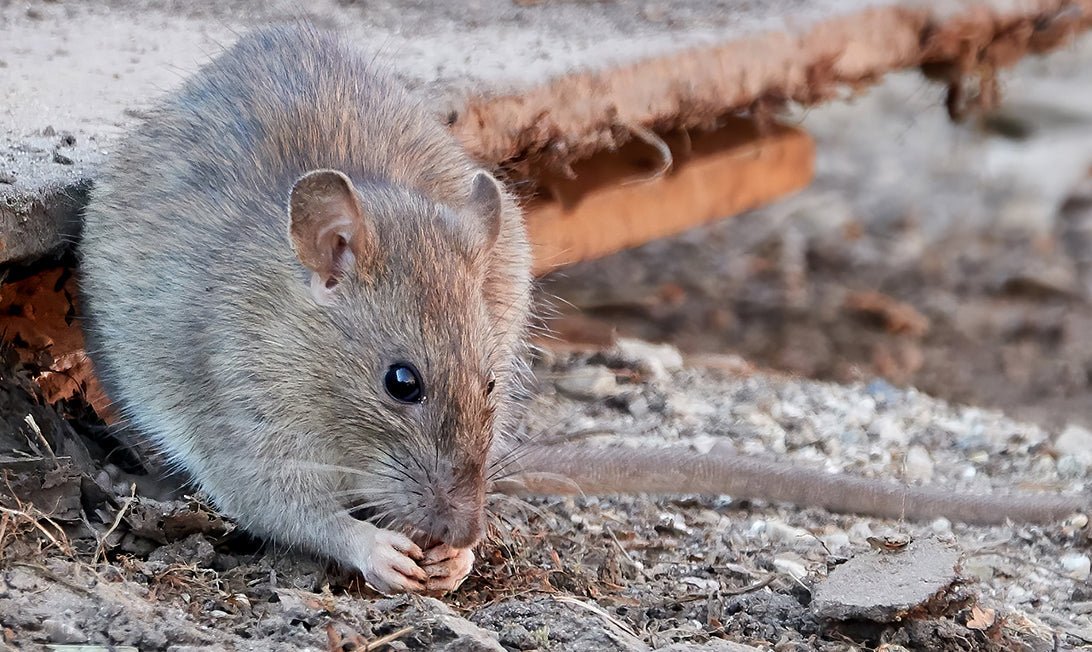
Rats and mice have been wreaking havoc in our homes since the dawn of time. However, there is one problem: how do we get rid of them safely?
Anticoagulant rodenticides have been used since the 1950s; however, there has been significant pushback by society in using these poisons. They work too well on other animals, such as our furry friends. So, what alternatives are out there? And how do they work? Let’s find out.
Why Poison Rats?
The management of rats and mice has been a problem for generations. Rodents are ubiquitous and opportunistic animals and are present on nearly all continents worldwide (1). They are a formidable and unwanted guest in our homes and have fast reproductive rates, making them some of the most challenging species to control (2).
The negative attention surrounding rats is not new and has been the center of our nightmares since before the Black Plague. This attention is not unfounded; rats can cause a myriad of problems. This includes causing considerable destruction through gnawing, destroying agriculture, and posing a significant health risk through being a reservoir of many diseases (3,4).
These have substantial economic consequences. For example, rodents could destroy enough rice stock in China that would be sufficient to feed 200 million people, costing around 19 billion dollars (5).
To help combat the negative effects of rodents, there are several different traps and poisons available to control rat and mice numbers. The mainstay of rat control appears to be poisons, also named rodenticides (6). This, however, leaves us with some questions. How do rat poisons work? What makes them so dangerous? And, are there safer alternatives?
Why are Rat Poisons so Dangerous to Your Family and Furry Friends?
In general, the first line of defense when trying to combat rodents is through anticoagulant rodenticides. These types of poisons kill rats and mice by stopping the coagulation of blood. This works by affecting how potassium is cycled through the liver. By altering potassium concentrations, these poisons can block the production of clotting factors, leading to hemorrhaging or, put simply, the rodents fatally bleed out (7).
These rodenticides, used since the 1950s, are particularly useful, leading to their use as a primary rat control method in many countries, as well as in our homes. However, the problem is they are too good. Not only do these rodenticides kill rats and mice, but they also kill other animals that come into contact with the poisons, including our furry friends, and in some cases, humans (8).
Investigations looking into the impact of anticoagulant rodenticides on other animals have been unanimous; they kill nearly everything. A wide range of animals, including other mammals, such as cats, dogs, and humans; birds; and other wildlife, are particularly vulnerable to these poisons (9,10).
It comes as no surprise that there is a level of concern among communities using anticoagulant rodenticides. For example, studies have indicated that nearly all residents in areas across California in the USA were worried about the impact these poisons have on other animals in their neighborhoods, especially pets (11).
As a result of this concern, there has been a particularly strong push-back against these types of rodenticides, with consumers wanting effective, safe techniques of reducing rodents in their homes. So what alternatives are out there?
What Alternatives are There?
Along with anticoagulant rodenticides, there is a new generation of safer rodent control techniques, including traps, deterrents, and rodent specific poisons.
Rodent specific poisons are particularly effective, and safer compared to traditional poisons. They work by decoupling the connections between the stomach and the brain, making rodents unable to recognize they are thirsty. This results in the rodents becoming dehydrated, leading them to simply fall asleep and pass away humanely (12).
Currently, two major products use this ability to disconnect the stomach and brain to lead to a safe and humane, death; these are EcoClear’s RatX™ and MouseX™.
EcoClear’s RatX™ and MouseX™
EcoClear has mastered how to control rodents, with no risk to yourself or your furry friends. Using their patented and natural formula, EcoClear can use the ability to decouple the regulation of thirst in rodents to their advantage.
Using sodium chloride and gluten wheat meal, EcoClear has created the perfect product to both decouple the brain and stomach, as well as dehydrate the rodents so that they pass away peacefully. Through this perfect mixture of compounds, EcoClear products are also able to dehydrate the rodent carcass, ensuring that you do not have to pinch your nostrils the next time you take a look in the attic.
In addition to providing a humane death, the mechanism regulating thirst in rodents is unique, meaning if your pets or family members are accidentally exposed to the poison, they are safe. RatX™ and MouseX™ truly are the epitome of safety and efficiency while remaining humane.
The Bottom Line
Finding the right rodenticide has been an issue plaguing society in recent years. Anticoagulant rodenticides have garnered substantial push-back due to their non-specific nature and the fact they are not humane. Luckily, there are alternatives.
EcoClear’s RatX™ and MouseX™ are two specific and humane poisons that work efficiently, while remaining safe for you, your family, and your furry friends.



